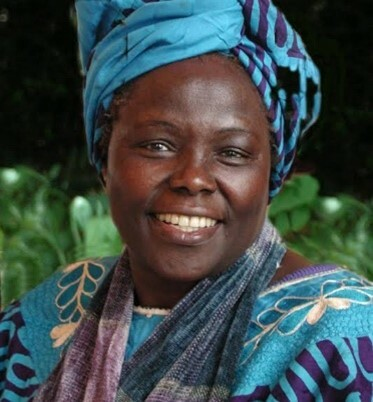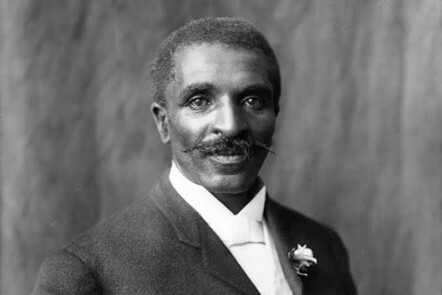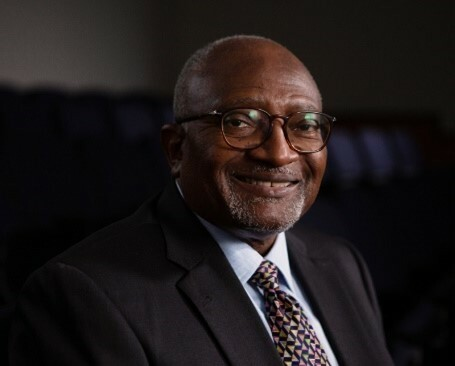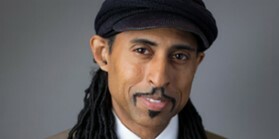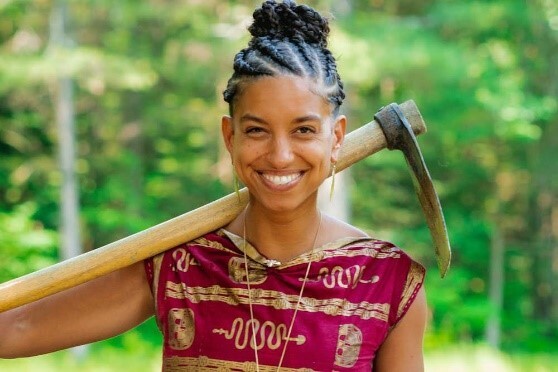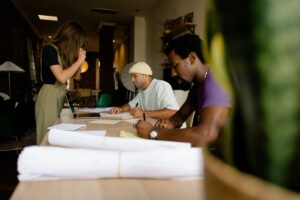During Black History Month, we pay homage to the invaluable contributions and remarkable achievements of Black individuals throughout history. In just a short span of years, I’ve witnessed a notable transformation in how this month is perceived. Not too long ago, engaging in conversations about this topic often left me with a sense of unease. The weight of a painful history or the discomforting, sometimes defensive reactions of those around me made such discussions challenging.
Today, however, I observe a significant shift in how people react to these conversations. More individuals are open to discussing and listening, fostering an atmosphere of understanding and empathy. As I sit here today, I do so with confidence, eagerly embracing the opportunity to engage in meaningful dialogues about Black History Month.
Many understandably raise the question of why we confine this celebration and reflection to just one month. While it’s entirely valid to challenge the idea of dedicating only one month to highlight Black history – a sentiment shared by many – it’s essential to emphasise that the importance of this history should be a year-round consideration. Within this dedicated month, we find a unique opportunity to cast a spotlight on the remarkable achievements of Black leaders, and in this blog, I’ll do just that, with a particular focus on environmentalists.
Wangari Maathai
Wangari Maathai, from Kenya, was a renowned environmentalist and founder of the Green Belt Movement. She’s best known for her tree-planting initiatives, which helped combat deforestation and promote women’s rights. In 2004, she became the first African woman to receive the Nobel Peace Prize for her efforts in environmental conservation and human rights.
George Washington Carver
An American botanist and agricultural scientist. He’s celebrated for his research on crop rotation and soil conservation, which revolutionised agriculture in the United States. Carver’s work with peanuts and sweet potatoes also contributed to sustainable farming practices.
Dr. Robert D. Bullard
Often referred to as the “father of environmental justice,” is a scholar and activist. He has been a leading voice in addressing environmental inequalities faced by Black communities. His work highlights the intersection of race, poverty, and environmental hazards.
Mustafa Santiago Ali
Mustafa Santiago Ali is a prominent environmental justice advocate in the United States. He has spent decades working on issues related to environmental and climate justice, focusing on marginalized communities disproportionately affected by pollution and climate change. Ali has held key roles in various organizations, including the National Wildlife Federation.
Leah Penniman
Leah Penniman is a co-founder of Soul Fire Farm, an organization that promotes sustainable farming practices and food justice. She’s a passionate advocate for racial equity in agriculture and has written extensively on the subject. Penniman’s work empowers Black and Indigenous farmers to engage in sustainable farming and land reparations.
There are many other inspirational Black leaders within the environmental and sustainability field, and the examples mentioned here represent just a fraction of their contributions. Additionally, it’s important to acknowledge and celebrate the ongoing efforts of networks and charities in the UK dedicated to supporting People of Colour in their pursuit of careers in the environmental and sustainability professions as well as the Diverse Sustainability Initiative (DSI), some of which are listed below:
- The Black Environment Network (BEN): Black Environment Network is working towards a vision of full multicultural environmental participation, local and global. Individuals, communities, organisations and government all have a role to play to create the framework for empowerment.
Black Environment Network – Working for multicultural environmental participation (ben-network.org.uk)
- The Black & Green Ambassadors: Connecting, empowering and celebrating diverse leadership and community action on environmental issues in Bristol and beyond; challenging perceptions, creating new opportunities and working towards ensuring the environmental movement is inclusive and representative of all communities
Home – Black & Green Ambassadors (blackandgreenambassadors.co.uk)
- Race Equality Foundation: While not exclusively focused on the environment, the Race Equality Foundation addresses racial inequalities across various sectors, including healthcare, education, and employment. They provide resources and support for individuals seeking to engage with environmental issues from a racial equity perspective.
Race Equality Foundation – a national charity tackling racial inequality
- Voyage Youth: Voyage is a social justice charity tackling racial imbalance in London. They empower and enrich the lives of young black people and transform disadvantaged communities. Although again they are not exclusively focused on the environment, they do focus on underrepresented industries including environment & sustainability.
Voyage Youth
- Black Geographers: The Black Geographers developed research to help understand why schools, universities and school organisations alike didn’t have as many black people on geography/ environment courses, they also launched scholarships and a mentoring programme.
Who We Are – Black Geographers
To summarise, the realm of Black History and movements offers much cause for celebration and reflection. As part of my role as the Diverse Sustainability Initiative Officer at IEMA, I often hear about the significant barriers faced by People of Colour when trying to enter the environmental/ sustainability profession. One of these obstacles is the underrepresentation of diverse leaders. If you’re eager to learn more and see some current young diverse leaders in this space I highly recommend reading Britt Hawthorne’s blog, “10 Young Black Climate Activists to Watch.” If you are a Person of Colour and you are working within an Environment or Sustainability role, remember that you can sign up to the People of Colour Network.
With that, I’d like to conclude by hoping that, whether you’re actively celebrating Black History Month this October or not, you are taking the time to reflect and learn. For those seeking more educational resources, do explore the Diverse Sustainability Initiative’s comprehensive list of resources designed to facilitate learning and understanding within the equality, diversity and inclusion (EDI) space.


